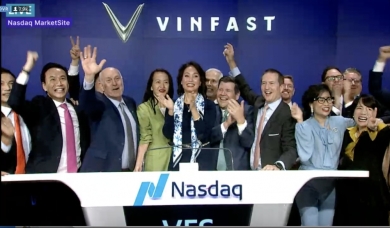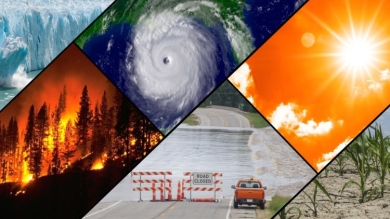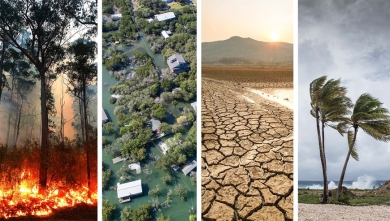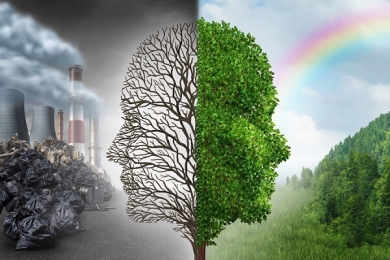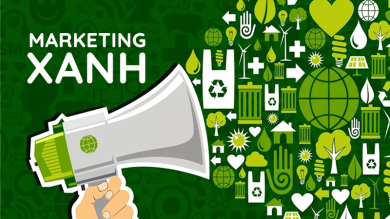The planetary risks of nationalism.

Let me ask an inconvenient question about an inconvenient truth. If time is an ethical dimension when it comes to curbing climate change before it is too late and tips over into irreversibility, shouldn’t we hasten to pull out all the stops available now to save our livable biosphere? Planetary realism would seem to dictate that lesser considerations of narrowly defined national interest should take a back seat and not impede the rapid transition to renewable energy resources.
Yet what is happening is that legitimate questions about both geopolitical and economic security risk morphing into fervent nationalisms that would damage the overall prospect of humanity.
It may make sense for the West to establish protective “small yards with high fences” to keep the most sensitive technologies, such as advanced microchips, that could be used for surveillance and suppression of human rights as well as for a hostile military, out of Chinese hands.
It may make sense to avoid becoming overdependent on supply chains and imports for critical industries — including, for example, port infrastructure at the heart of global commerce. One Chinese state-owned company alone produces 70% of the world’s cargo cranes, which could conceivably be disrupted in a conflict.
Even if it is overblown to think that TikTok is any more a nefarious platform for subverting the moldable minds of teenagers than any Western-owned social media, there is a logic to severing the link with a company that is, in the end, subordinate to China’s political leadership.
But does it make sense to build new barriers that block imports of far more commercially viable and affordable Chinese solar panels at this critical moment for the planet just because a Communist Party regime has managed to realize Adam Smith’s theory of the efficient complementarities of trade better than the capitalist West? Does it make sense to expand small yards with high fences to rooftops, stalling at the presently insufficient capacity of solar power generation instead of urgently promoting the installed capacity necessary to dent global warming?
China last year generated more energy from renewables than fossil fuels despite its legacy coal plants, installing more new solar capacity domestically than the U.S. has since the first commercial installations of modern panels in the 1970s. Despite tariffs of 25% imposed by the climate-denying Donald Trump when he was president and carried on by the Biden administration, China today makes eight of every 10 solar panels produced worldwide.
According to the International Energy Agency, as the Financial Times reports, it also dominates the supply chain, “producing 85% of the global supply of solar cells, 88% of solar-grade polysilicon, and 97% of the silicon ingots and wafers that form the core of solar cells.”
China reached this position over the last two decades through concerted government policies to promote sources of renewable energy and meet climate goals for the home front, stimulating demand with subsidies not unlike those long provided in the U.S. in states like California and now through Biden’s Inflation Reduction Act.
Growth in China’s domestic demand in turn fostered the extensive articulation of a network of suppliers that provided the platform for exporting production by a maturing industry. The lower cost of capital, energy and labor in China compared to the U.S. or Europe has resulted in a 44% price advantage.
A chief concern emphasized by human rights organizations in recent years is that the supply chain for polysilicon reaches into the Uighur province of Xinjiang where forced labor has been a practice. Pressure from the West, including a U.S. law passed in 2021 banning imports with elements originating in the Uighur region, has significantly reduced that link. Chinese companies have since set up new supply chains for products sold to the U.S. and Germany that avoid upstream sourcing from Xinjiang. Further, U.S. Customs and Border Protection vigilantly inspects solar imports to block banned panels. That has led to a bottleneck of supply in 2023, which is only now clearing up.
One other side of the coin has undeniably been the hollowing out of solar panel manufacturing in the West, which is prompting calls for even stiffer tariffs on Chinese imports.
Yet, today, two-thirds of solar jobs in the U.S. involve installation, while only 13% are in manufacturing. In Europe as well, 84% of jobs are in installation while 7% are in manufacturing.
Even for those who worry more about the end of the month than the end of the world, it would thus seem an acceptable tradeoff in the name of hastening the energy transition not to further block the export of China’s already built capacity when the West would have to spend many years building up its own manufacturing base and supply chains when time is running out.
Given this reality, an ethical case can be made that the planetary imperative of collective climate security should win out over a purely nationalist narrative when the complementarity roughly works in a way favorable to all.
Instead of contemplating the kind of restrictions that might rightly apply to sensitive information technologies, in this case what is called for is a practical “partnership of rivals” that does not weaponize global warming in the new Cold War with China.
This applies in the same way, but to a different extent, to electric vehicles. Since their manufacturing capacity and scale of employment is well established already in some Western countries, negotiated quotas on market share (as was the case with more fuel-efficient and less expensive Japanese cars), instead of outright bans or high tariffs, would seem the most appropriate policy here.
To invite geopolitical tensions into the climate realm will not only end up destabilizing whole regions already afflicted by extreme weather events and an increasing outflow of refugees. If climate calamity is not mitigated, the national clashes that seem so important today will, in the end, appear meaningless as everyone, no matter who or where they are, will suffer the same fate.
BY NATHAN GARDELS - NoemaMag


